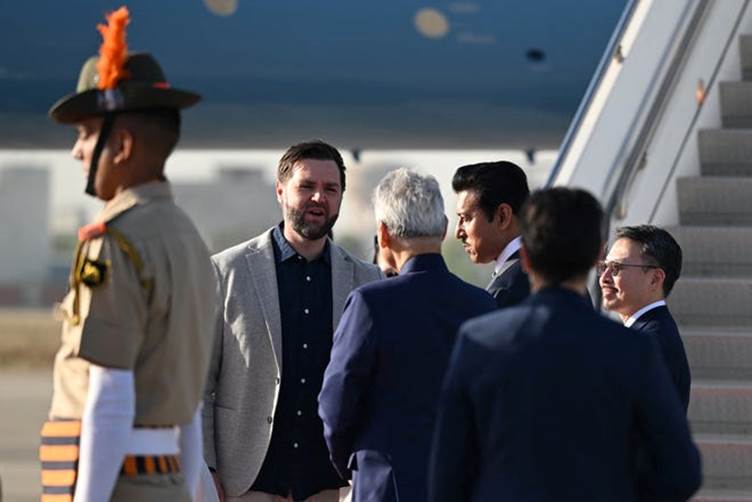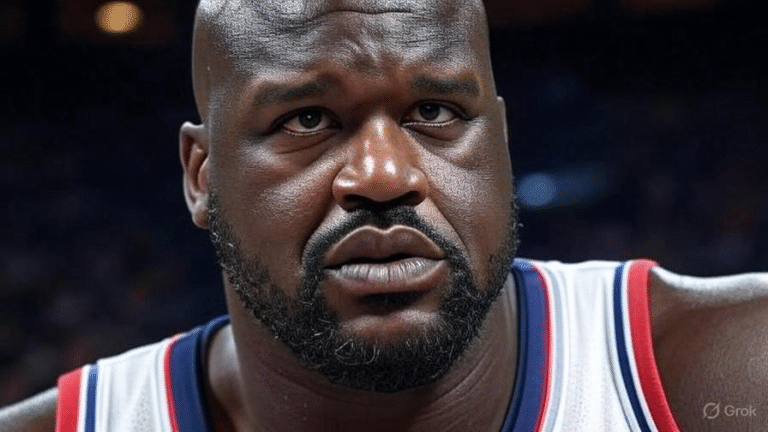WASHINGTON – Vice presidents with presidential aspirations often struggle with visibility. However, JD Vance, the current Vice President, has thrown this trend to the wind with his bold approach, making waves across the political landscape. From challenging Europe to defending controversial Trump nominees, Vance has become a central figure in the administration, garnering attention both for his assertive actions and the consequences they may have in the future.

For Vance, the 2028 presidential race seems to be on the horizon. Allies, strategists, and even some Democrats are betting that his forceful stance could work in his favor should he run for president. House Speaker Mike Johnson, R-Louisiana, praised Vance’s high level of engagement, stating, “He is as directly engaged and active as any vice president that I can remember.”
But Vance’s brashness carries its risks. In an administration with one of the lowest early approval ratings in modern history, his aggressive approach could eventually backfire. By aligning himself with policies that could later be seen as blunders, Vance is securing support from the Republican base but potentially alienating key groups for the long-term. Joel Goldstein, a professor emeritus at Saint Louis University, cautioned, “He recently dropped the Ohio State trophy… the question is whether that will become a metaphor for his vice presidency.”
At just 40 years old, Vance is the youngest vice president since Richard Nixon, marking him as the first millennial ever to be one heartbeat away from the presidency. His rise in the political sphere has been marked by a notable departure from the more cautious roles played by recent vice presidents, who often refrained from overshadowing their bosses. Mike Pence’s reluctance to support Trump’s 2020 election claims and Kamala Harris’s struggle with visibility during her first campaign both underscore the challenges Vance is keen to avoid.
Unlike his predecessors, Vance is in a unique position. As a vice president serving under a term-limited president, he doesn’t face the same constraints that other vice presidents have had. Democratic strategist Ashley Etienne pointed out, “He is the standard-bearer for the MAGA movement, which demands he is aggressively out front reinforcing and expanding their base.” Vance’s understanding of Trump’s history and temperament allows him to navigate this high-stakes environment with caution while keeping his eyes set on 2028.
Soon after his inauguration, Vance quickly acclimated to his new role. Four days in, he was casting his first tie-breaking vote on the Senate floor, having already found himself involved in the push for Trump’s nominees. It was just one of many instances where Vance has stepped up to handle Trump’s more controversial decisions. He has been an advocate for nominations ranging from defense secretaries to national security advisors, proving his worth as a loyal and vocal supporter of the administration.
His visibility extends beyond his official duties as vice president. Regularly attending the GOP’s weekly policy luncheons and dining with senators, Vance has made it clear he is not content to remain a ceremonial figure. Ohio Senator Jon Husted praised Vance for his effectiveness in communicating Trump’s vision, calling him “one of the most effective advocates” for the administration.
Despite the challenges Vance faces, such as the ongoing trade conflict with China and his involvement in the somewhat stalled efforts to broker a deal over TikTok, his approach seems to be improving his public image. While his favorability ratings have fluctuated, with early polls showing less support than Trump, Vance’s public standing has risen since March, even after earlier controversies over his remarks.
However, his close ties to Trump’s policies may present a double-edged sword. As Vance continues to advocate for controversial issues like the war in Ukraine, it will become increasingly difficult for him to distance himself from any potential fallout. Historian Joel Goldstein remarked, “It’s going to be hard for him to say, ‘I wasn’t involved,’ or to distance himself.”
Vance’s approach to the vice presidency has been one focused on Trump’s “America First” agenda, an ideology that he stands behind strongly. As Taylor Van Kirk, his press secretary, noted, Vance’s role has been to focus on advancing the President’s policies for the good of the American people.
Ultimately, Vance’s future may be tightly linked to Trump’s political success. According to Speaker Mike Johnson, “Vance is probably the front runner for the party’s nomination next time,” cementing the notion that Vance is positioning himself for the ultimate political prize.



